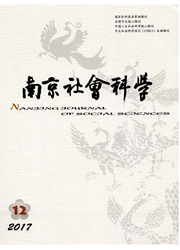

 中文摘要:
中文摘要:
以洛伊(Lowi)的政策分类框架为基础,运用多案例比较研究方法,对中国背景下政策执行问题进行的研究表明:分配政策的执行偏差往往是由政策本身的因素造成的;构成性政策执行的关键在于不同执行机构之间的沟通和协调;规制政策执行难度大,影响其有效执行的关键因素一是规制对象的特点,二是能否有效控制规制者与被规制者之间建立在权钱交易基础上的合谋;再分配政策执行过程中地方政府、生产商和公众等利害相关者会围绕其所蕴含的巨大利益空间展开复杂的利益博弈。在现有的制度背景下其必然结果是地方政府、生产商和社会中上阶层在博弈中获胜,共同瓜分再分配政策中所蕴含的巨大利益,导致政策执行失效。
 英文摘要:
英文摘要:
Based on Lowi' s policy typology framework, this study explores the problem of dif- ferent policy typologies implementation in Chinese background, using multiple-cases comparative studies. It is indicated that the distributive policy is easy to implement. Its implementation deviation is usually caused by the policy itself. The success of constituent policy implementation depends on the communication and cooperation among the different departments and levels of the government. The regulation policy is hard to implement. The key factors which influencing its effective implementation include two aspects. One is the characters of the target groups. Another is that whether the conspiracy between the regulator and the being regulated could be controlled. In the implementation process of the redistributive policy, the stakeholders such as the executor, the producer and the public etc. , will play an interest game around the huge benefit space included in the redistributive policy. In Chinese institutional background, the result of the game must be that the local government, the producer and the upper middle class are the winners and share the huge benefit included in the redistributive policy. And this leads to the failure of the policy implementation finally.
 同期刊论文项目
同期刊论文项目
 同项目期刊论文
同项目期刊论文
 期刊信息
期刊信息
